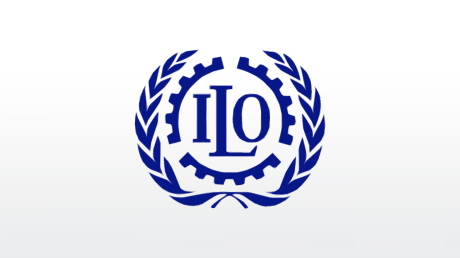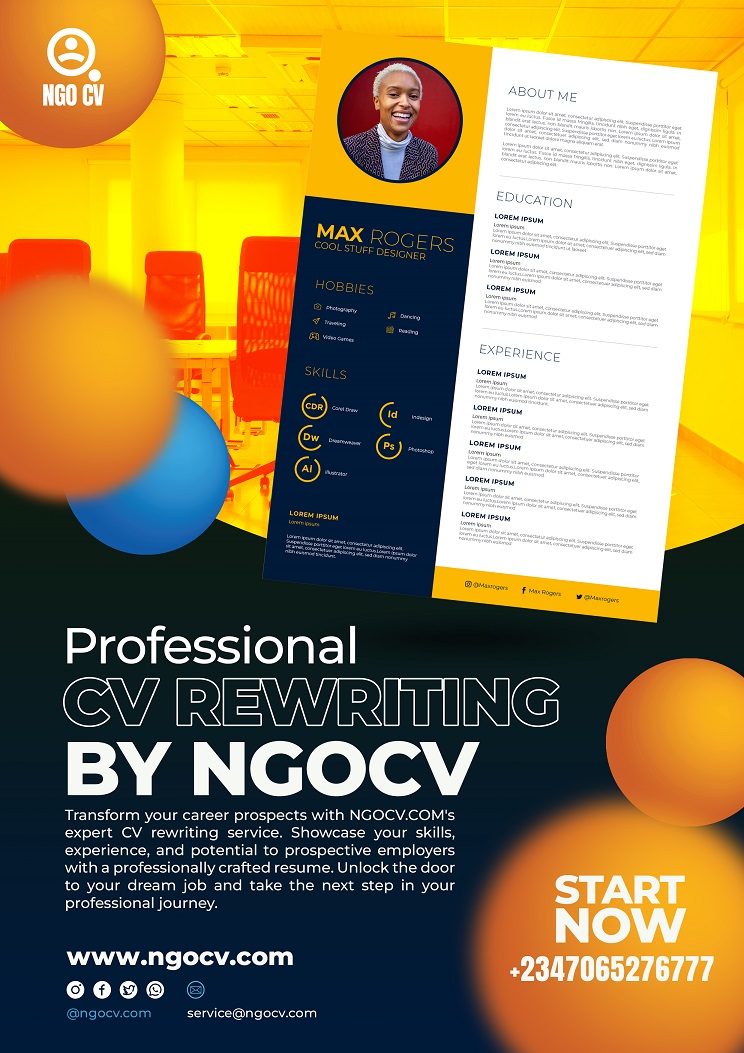
1. Background
Technical context:
Africa’s growing youth population and the continent’s transition to the digital economy represent a huge opportunity to bolster African economies while addressing the persistent high levels of un- and underemployment as well as working poverty among young people.
Young Nigerian women and men are faced with considerable challenges to find decent work opportunities. Next to the availability of jobs for young people, work quality presents a formidable challenge in the Nigerian labour market. The overwhelming majority of Nigerians work in the informal economy. Linked to this trend, some 60 per cent of employed persons between the ages of 15 and 24 across the region were living in poverty in 2018, according to ILO estimates.
A further key constraint in the Nigerian youth labour market is a misalignment between labour supply (skills) and demand (jobs). The Nigerian education system, particularly at the Technical and Vocational Education and Training (TVET) level, faces a number of challenges including with regard to access, quality and infrastructure, while young people continue to have limited opportunities to learn on the job, for instance through apprenticeships or internships. Improving the labour market relevance of education outcomes requires a better alignment between skills supply and demand.
To this end, information and communication technology (ICT) can enhance education, reduce youth unemployment and promote social and economic development. However, for youth to benefit from the transformative power of ICTs, they must be equipped with a range of digital skills and have affordable access to connectivity. The Nigerian economy shows significant potential to harness technological change and ICTs in order to create a large number of jobs for its young people: for example, Nigeria accounts for some 30 per cent of digital and e-commerce platforms in Sub-Saharan Africa (and 60 per cent of the continent’s platform workers) and has the biggest e-commerce market Still, lack of digital infrastructure and devices, sustainable power supply, institutional frameworks, educational practices and digital literacy and skills present important barriers that need to be urgently addressed.
Context of the assignment:
To create decent employment and enhance skills for youth in Africa’s digital economy, the International Labour Organization (ILO) and the International Telecommunication Union (ITU), with the support of the African Union (AU), have initiated a programme with continental reach. The ILO/ITU/AU Joint Programme on Boosting Decent Jobs and Enhancing Skills for Youth in Africa’s Digital Economy has been launched under the aegis of the Global Initiative on Decent Jobs for Youth and focuses initially on six African countries (Côte d’Ivoire, Kenya, Nigeria, Rwanda, Senegal, South Africa, more information available is here).
The programme framework at continental and national level was developed in consultation with young people, governments, workers’ and employers’ organizations, educators and public and private actors of the digital economy. The programme will operate through an iterative cycle of implementing interventions to create jobs, strengthen digital skills and improve employment services; establishing partnerships and networks, and providing policy advice using new diagnostic tools and data showing what best boosts youth employment. Informed by digital economy priorities and plans at the national level, the programme will facilitate the exchange of information and learning across six target countries and beyond.
The programme implementation in Nigeria in 2021 includes activities to lay the groundwork for scaling-up interventions, developing and deploying analytical tools to generate evidence on youth employment opportunities in the digital economy.
2. Objective of the assignment
The objectives of this assignment are to:
- Develop a methodology and plan to conduct the skills assessment in the digital economy in Nigeria; and,
- Assess current and emerging skills supply and demand in the digital economy in Nigeria with the view to identify gaps, opportunities and detect specific needs that, if addressed, can generate new employment opportunities for young people.
The results of the assessment will facilitate co-designing digital skills development initiatives with ILO and ITU constituents in Nigeria as part of the ILO/ITU/AU Joint Programme on Boosting Decent Jobs and Enhancing Skills for Youth in Africa’s Digital Economy in Nigeria, among them:
- strengthening and upgrading digital literacy and skills curricula and competency standards;
- integrating digital literacy and skills trainings into existing educational programmes at federal, state and local levels;
- capacitating training institutions to deliver training programmes with digital skills components; and,
- establishing platforms/ forums to integrate the trained job seekers with opportunities in the digital economy (linking demand with supply).
Key research areas that the assessment will cover include:
· Digital economy potential and diagnosis
- An assessment of existing policies and strategies related to the digital economy and recommendations to unlock employment opportunities for young women and men.
- A rapid market analysis of digital and e-commerce platforms (desk review) with a view of informing the choice of geographic areas and economic sectors to further focus the digital skills assessment on.
- Current and potential job growth opportunities from a public and private sector development perspective including an identification of priority sectors.
· Skills demand side:**
- Current and emerging skills required by the private and public sector to unlock job creation opportunities in the digital economy.
- Skills (by type of digital skills, and related skills) and labour shortages (by type of occupation) in the targeted sectors where demand has spiked due to digitalisation and/or which are prioritized under national development plans.
- Critical digital skills applicable to the analyzed sectors (split into basic, intermediate and advanced digital skills).
- Other employability skills that can be relevant to the targeted sectors (foundation skills, core skills, soft skills, business management and entrepreneurship skills, transferrable technical skills).
· Skills supply side:
- Understanding of the youth target audience, in terms of needs, potential and vulnerabilities.
- Sets of skills currently available and resulting from on-going (TVET, formal and informal) training courses and programmes.
- Training programmes (existing or missing) that are of significant importance to the digital economy (by mirroring skill demand and supply analysis).
3. Scope of work and tasks:
The scope of the assessment comprises the following tasks;
I. Develop an inception report that outlines a plan of action, and contains a detailed description of the assessment methodology (incl. stakeholder engagement mechanism, effective and efficient data collection tools) as well as the time frame for conducting the assessment and completing the assignment.
This task implies:
· Review of the existing work on digital skills assessments at federal, state and local levels
- Get familiar with ILO and ITU tools as well as relevant publication on youth employment in the digital economy, digital skills assessment and skills mismatch and utilize these in the work.
- Provide a mapping of the existing major digital skills frameworks, assessment methodologies, policies and strategies at national and state levels, also taking into account the ILO Global framework on core skills for life and work in the 21st century, ITU Digital Skills Guidebook, as well as available approaches that can serve the scope of this assignment.
- Identify and review recent country level studies, including but not limited to the youth labour market situation and the potential of innovation and digital technology to spur job growth.
- Provide a brief overview of the current state of digital skills assessment in the country with the objective of making recommendations on how existing capacities could be strengthened throughout the ILO/ITU programme implementation.
· Define key constituents and further stakeholders to help manage the assessment process
- Diagnostic / mapping of the digital policy and strategy frameworks for the country including institutional frameworks
- Mapping of key stakeholders in the digital skills and employment ecosystem Suggests mechanisms for regular dialogue /consultation in view of validating the assessment results while strengthening local capacities to institutionalize these types of assessments in the future. .
· Further narrowing down the scope of the assessment in terms of its geographic focus, youth groups and target economic sectors through a series of consultations with key stakeholders
- Identify and validate the scope of the analysis in terms of targeted economic sectors and occupations
- Define geographic target areas (the assignment might also broadly cover the national economy depending on the outcome of the initial consultations)
- Agree on population of individuals to be targeted (for example youth NEET, vulnerable young women and men in selected communities, youth in TVET, etc.)
· Definition of methodology and design data collection tools for the assignment
- Select appropriate qualitative and quantitative data collection tools (that might include desk research, focus group discussions, key informant interviews, tracer studies, (online) surveys) to be used during the assignment, including a description of the target groups, sample sizes, and relevant research questions for each data collection method/tool.
· Drafting of an inception report
- Present findings from the above together with a detailed work plan, a proposal on how to continue engaging ITU and ILO constituents and other key stakeholders, effective and efficient data collection methodology and timeframe in an inception report to the ILO and the ITU.
- Revise and finalize the inception report following comments received from the ILO and the ITU.
II. Assessing current and emerging digital skills supply and demand in the digital economy in Nigeria
This task implies:
· Design, finalize and deploy quantitative data collection tools as per the inception report
- Develop finalize and deploy an online questionnaire for enterprises facing a spike in demand for specific digital skills and occupations due to digitalization.
- Ensure that the online questionnaires are disseminated through various platforms so as to get many potential respondents as possible.
- Develop, finalize and deploy an online questionnaire to facilitate a better understanding of the target audience – their skills, aspirations and skill gaps – and to be administered through a relevant sample of individuals according to the programme scope (e.g. youth NEET, informal economy operators),. This might include a tracer survey for young individuals that participated in training programmes, including through TVET institutions.
- Ensure that the required number of online responses (to be agreed with ILO/ITU as part of the inception report) are received to enable sound quantitative analysis. This should be complemented through phone interviews where necessary.
- Compile and store all collected data through online surveys in an appropriately structured format (to be agreed upon in consultation with ILO/ITU);
· Design, finalize and deploy qualitative data collection tools as per the inception report
- Developing guidelines for skills supply (training providers) semi-structured key informant interviews, informed by the desk review, and methods on how to systematize and analyze responses.
- Conduct in-depth interviews with key training providers and designers of formal and informal vocational and technical education with the objective of mapping and analyzing existing supply that is currently contributing to the creation of digital skills and on-going/emerging training programmes that could be further enhanced
- Conduct in-depth interviews with representatives of government, key ministries, and with private and public employment service organizations as well as with business associations and worker representatives to understand their perception of the current skills supply and demand for the digital economy (up to 25 key informant interviews which might be divided by sector/industry). Interviews may be carried out in-person or on the phone and serve to complement the quantitative data collection
- Document and store contact details, answers, findings and relevant documents and in an appropriately structured format (to be agreed upon in consultation with ILO/ITU).
· Analyze collected data and conduct a gap analysis
- Conduct data analysis based on collected data. During the analysis, pay attention to the previously identified underrepresented groups. Comparing these groups’ skills levels with those of the population as whole may reveal skills inequalities.
- Conduct a gap analysis to gain an understanding of any mismatch between the nation’s current digital skills supply and its current digital skills demand, using information gathered. Some skills mismatch information is readily available in data compiled as part of the desk review. Use some available potential ways of examining the data in order to identify digital skills gaps.
· Synthesize findings and prepare their dissemination
- Develop an annotated outline of the assessment report, incl. section on background, methodology, sections related to the main research questions as well as a section on recommendation and action to be taken by ILO, ITU and its partners.
- Based on ILO and ITU feedback on the annotated outline, submit an elaborate presentation of the findings to ITU and ILO for feedback, comments and suggestions.
- Validate initial findings with national stakeholders’ representatives.
- Submit a final report and associated PowerPoint slides to include all required areas of assessment, for reference and any other purpose as maybe deemed applicable by ITU and ILO. The copyright for all content produced shall be vested with ITU and ILO.
- Formulate a dissemination strategy determining to whom and how assessment information is to be communicated.
The ILO and ITU will provide guidance for layout and design of the reports and PowerPoint presentations. Data, figures and tables need to be submitted in separate excel sheets.
4. Assignment concrete deliverables and timeline
The assignment should be carried out over a period of around three (3) months. The technical proposal should include the following deliverables, including timeline and a description of the level of effort for each deliverable.
Key Deliverables
Deliverable 1 – Inception Report: the inception report outlines the plan of action and contains a detailed description of a governance structure, an effective and efficient data collection methodology and time frame for conducting the assessment and completing the assignment. Review consultations with ILO, ITU, key stakeholders and the governance structure of the ILO/ITU Joint Programme. (Contract to be provided by ILO.)
Deliverable 2 – Qualitative and quantitative data collection tools: this includes final questionnaires (online survey) and interview guidelines (semi-structures key informant interviews) as well as a list of primary and alternative target groups for data collection. Consultations with ILO, ITU. (Contract to be provided by ILO.)
Deliverable 3 – Annotated outline (ca. 5 pages) of the assessment report: the annotated outline contains a brief description of each section and sub-section of the main report, including an indication which research question is going to be answered in which part and through which data collection methods. Consultations with ILO, ITU. (Contract to be provided by ILO.)
Deliverable 4 – Database of conducted online and telephone surveys (quantitative data collection): this includes obtaining an agreed number of observations (as per the inception report) by disseminating the survey through various online platforms and conducting a selected number of phone interviews if so appropriate (for hard to reach populations, if applicable). (Contract to be provided by ILO.)
Deliverable 5 – Database of conducted in-person/phone interviews: this includes detailed notes and/or transcripts of semi-structured interviews. Consultations with ILO, ITU. (Contract to be provided by ITU.)
Deliverable 6 – Draft assessment report (max 40. Pages, excluding annexes). Review consultations with ILO, ITU, key stakeholders and the governance structure of the ILO/ITU Joint Programme. (Contract to be provided by ITU.)
Deliverable 7 – Final assessment report following revisions of the draft report as well as detailed slide deck focusing on the findings and recommendations of the assignment. (Contract to be provided by ITU.)
5. Roles, reporting and specific clauses.
- The consultant, throughout the course of this assignment, will report on a weekly basis to the ILO and the ITU for coordination and follow–up
- Data collection tools are either provided by the ILO and ITU or will be shared and discussed with the ITU and ILO prior to their use and mutually agreed on;
- If it appears necessary to modify the tasks of work or exceed the time allocated, the consultant must discuss the circumstances with the ILO and ITU and obtain prior written approval.
- ILO and ITU may disclose the draft or final report and/or any related information of the systematic review to any person and for any purpose ILO and ITU may deem appropriate.
- All data and information received from the ILO and ITU for the purpose of this assignment are to be treated confidentially.
How to apply
Interested applicants are invited to apply by sending a cover letter, technical proposal, detailed financial proposal and CV(s) to Dino Corell ([email protected]) and Christine Sund ([email protected]). The assignment is financed jointly by ILO and ITU and the selected consultant is expected to be contracted by both organizations, following the schedule outlined in Section 4. Technical and financial proposals should contain a separate description for each deliverable.
The application deadline is 27 August 2021 23:59 PM CEST.
Required qualifications, skills and experience:
- An Advanced University Degree in any of these relevant fields: social science, social policy, economics, development studies, etc.), or a related field with experience in skills evaluations or assessments at country or regional level;
- At least 8 years of progressive experience of working in capacity/skills development, labour market policy making and programme implementation, focusing on skills development and other related fields, and having strong understanding of digital economy in the context of Nigeria would be an asset;
- Experience in collecting qualitative and or quantitative data for socio-economic research projects highly desirable;
- In depth understanding of labour market and youth employment trends in Nigeria.
- · Proven experience in working with and supporting government agencies and/or of large-scale digital transformation or ICT, and skills assessment/measurement projects in Nigeria will be an added advantage;
- Excellent working relationships with youth employment stakeholders in Nigeria, including governmental organizations, non-governmental organizations and youth organizations.
- Demonstrates strong English communication and drafting skills.




